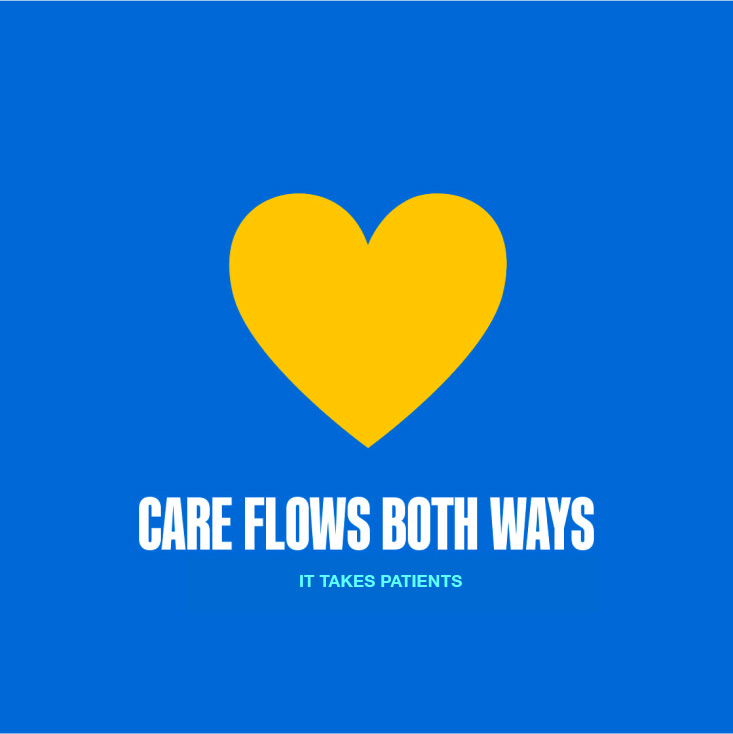Show your support
Let’s commit to respecting healthcare workers as people—just like us. Show your support by sharing our yellow heart graphic on social media. Together, we can create a culture of care that flows both ways.

Healthcare is built on trust and compassion. But when tensions and temperatures run high, it’s easy to forget the people behind the care—the doctors, nurses, and staff dedicated to helping us heal. Letting our fear and frustration take over can create unsafe conditions and make it harder for healthcare workers to do their jobs. Let’s bring humanity back to healthcare and remember that every interaction is an opportunity to choose kindness and respect. Care is more than treatment—it’s how we treat each other.
When you encounter workplace violence, it takes away from everybody else. You can't focus on the care that you need to give people. You can't make everybody else feel safe. And it often scares the other patients and the other visitors, too.
Violence is never the answer. We are all trying to do our best, and we just ask that you give us the same patience, the same tolerance that you would give anybody.
The people caring for our patients, our families, our communities, we're people who actually want to be there and improve the health of everyone. I want everyone to understand that if needs aren't met immediately, that doesn't mean we don't care. That doesn't mean we're not trying.
Nurses Have Experienced at Least One Type of Workplace Violence in the Past Year
Source - National Nurses United
Workplace Assaults Occur in Healthcare Settings
Source - Occupational Safety & Health Administration
Likelihood That Healthcare Workers Will Experience Violence Compared to Those in Other Fields
Source - Bureau of Labor Statistics
Nursing Personnel Experience Workplace Violence Every Hour
Source - Press Ganey
DID YOU KNOW:
Healthcare workers possess a unique combination of skills, including critical thinking, multitasking, and adaptability, which allows them to handle high-stress situations with grace and composure.
Let’s commit to respecting healthcare workers as people—just like us. Show your support by sharing our yellow heart graphic on social media. Together, we can create a culture of care that flows both ways.

12 Tips to Create Safer Spaces in Healthcare
Learn practical strategies for managing emotions and communicating effectively in healthcare settings.
De-escalation in Healthcare
Proven strategies for calming tense situations to avoid potentially dangerous and harmful results.
Prioritizing Our Healthcare Workers
The importance of addressing the intersection of workplace violence and mental health and wellbeing.
Mitigating Violence in the Workplace
Guidance on managing challenging interactions with patients.
Mitigating Targeted Violence in Healthcare Settings
Resources on healthcare safety laws and policies.
Maryland Hospital Association Resources for Addressing & Preventing Workplace Violence
Proven strategies for calming tense situations to avoid potentially dangerous and harmful results.
If you’re a healthcare worker looking to promote respect, patience, and positive interactions in your workplace, download our free toolkit. It contains printable resources designed to be placed in hospitals and health systems to encourage thoughtful engagement.
Download the Toolkit